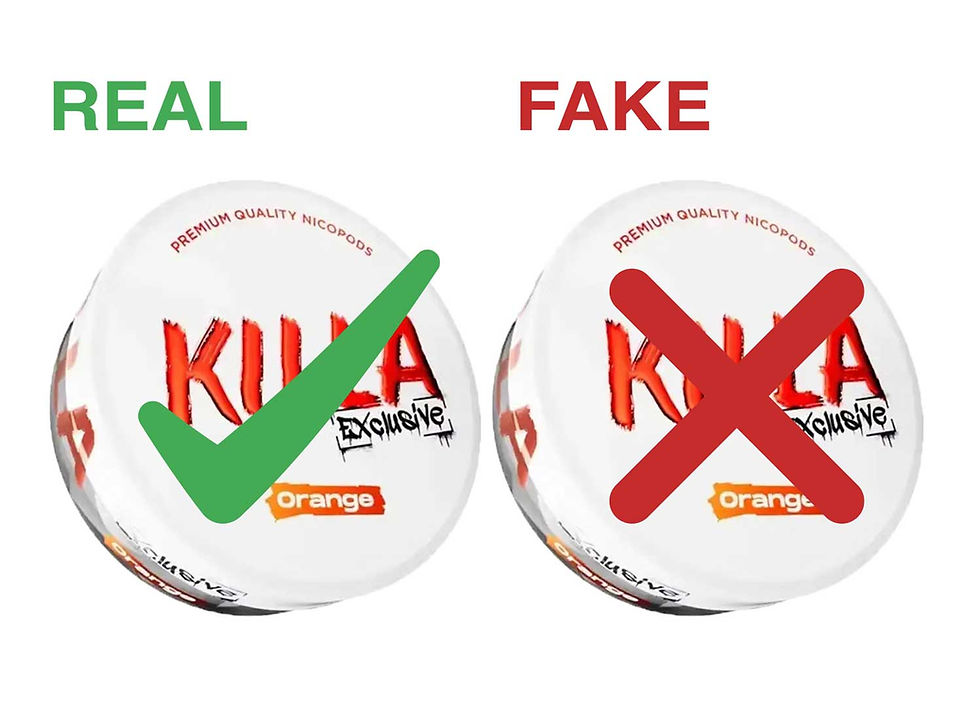Use of snus in football
- Nicotine Education Team
- Feb 14, 2024
- 3 min read

Footballers and athletes are beginning to use snus as a performance-enhancing substance, but is there really a correlation? And if so, how much of a competitive edge is it?
Snus has been used by footballers for a while now until it was recently banned from use by most European countries due to its association with increased risk of cancer. Snus is believed to improve a player’s mental and performance boost. Snus portions contain 27mg of Nicotine per pouch, compared to 10 mg in cigarettes, a higher dose of nicotine without compromising lung health. A compromise most athletes will not consider. Caffeine is known to increase focus and heighten alertness; this is because Caffeine is a stimulant.
This has not stopped footballers from using snus. However, Newcastle defender Jamaal Lascelles, Arsenal striker Pierre-Emerick Aubameyang, Manchester United defender Victor Lindelof, Jamie Vardy and even a League One manager claimed some of his substitutes would get through two or three portions in a game, safe to say some footballers do not care what the research says. Its not just footballers that have adopted snus, a low expense nicotine delivery method, athletes from various high intensity sports have adopted the use of nicotine in a non-combustible delivery method to help them gain an edge. As far as the football medical staff is concerned and the Anti-doping regulations by FA, snus has been given the all clear for use by players. This statement comes with a bit of asterisks: players have been seen and pictured using snus and copious amounts of caffeinated drinks simultaneously, a definite health concern that’s now on FA’s radar.
Nicotine, too, is a stimulant; however, its association with improved physical performance has been labelled a fad by most sports scientists.
At the same time, WADA (World Anti-Doping Agency) conducted research on the performance benefits of snus on 18 individuals. The study focused on evaluating the stamina, overall fitness and tine to exhaustion, The result? A 13.5% decrease in performance without snus. A possible result of the increased sympathetic stimulation of the myocardia by nicotine, which translated to English, means nicotine can increase the heart’s efficiency. Creating mixed opinions on the performance benefits of drugs; at the end of the day, however, we have always known the basic physiologic effects of nicotine on the body and our blood vessels, the increase in blood supply to muscles, increase in catechol amines (substances made by our adrenal glands that increase the activity of our nervous system, essentially heightening reflexes and fight or flight response) and blood pressure. The real question shouldn’t be ‘Does snus improve physical and mental performance?’ as this opens up an impossible bag of mixed opinions and elaborate studies; the question should be whether the use of snus for an arguably small performance benefit is worth it. With products like high-caffeine energy drinks and tobacco-free nicotine pouches that can accomplish a similar effect with a lot fewer risks and potential health hazards, the answer is pretty straightforward.
Other football managers have called out the use of snus and made statements on its negative impact; in the football and sporting world, the use of addictive or taboo substances by athletes is looked down upon as the audience, which consists of mainly youth, considers athletes the best of youth, and are therefore looked up to. Top sports require hard workers who respect their bodies, their competitors and the sport itself.








Comments